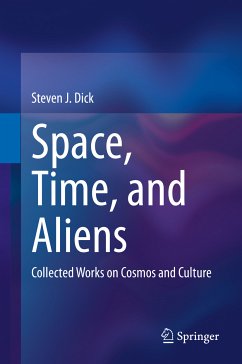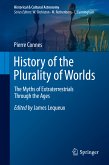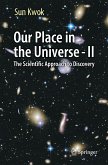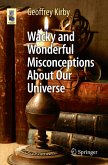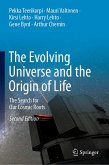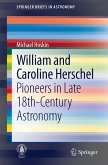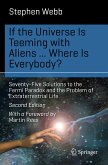In this comprehensive and interdisciplinary volume, former NASA Chief Historian Steven Dick reflects on the exploration of space, astrobiology and its implications, cosmic evolution, astronomical institutions, discovering and classifying the cosmos, and the philosophy of astronomy. The unifying theme of the book is the connection between cosmos and culture, or what Carl Sagan many years ago called the "cosmic connection."
As both an astronomer and historian of science, Dr. Dick has been both a witness to and a participant in many of the astronomical events of the last half century. This collection of papers presents his reflections over the last forty years in a way accessible to historians, philosophers, and scientists alike. From the search for alien life to ongoing space exploration efforts, readers will find this volume full of engaging topics relevant to science, society, and our collective future on planet Earth and beyond.
Dieser Download kann aus rechtlichen Gründen nur mit Rechnungsadresse in A, B, BG, CY, CZ, D, DK, EW, E, FIN, F, GR, HR, H, IRL, I, LT, L, LR, M, NL, PL, P, R, S, SLO, SK ausgeliefert werden.
"Steven Dick's writing is always very interesting, thoughtful, and well-researched, and he is very good at covering broad themes. ... Much of this book is an interesting read, and it forms a very useful reference work ... ." (Richard McKim, The Observatory, Vol. 141 (1282), June, 2021)
"Steve Dick not only makes accessible a significant portion of his oeuvre, but provides perceptive contemporary commentary on how the many questions and issues he has addressed over the years in the areas of the history of astronomy, the taxonomy of astronomical practice, the continuing search for life elsewhere in the Universe, and the question of the ubiquity of life itself, have fared, through his efforts and those of many others." (David H. DeVorkin, Journal of Astronomical History and Heritage, Vol. 23 (3), 2020)
"Steve Dick not only makes accessible a significant portion of his oeuvre, but provides perceptive contemporary commentary on how the many questions and issues he has addressed over the years in the areas of the history of astronomy, the taxonomy of astronomical practice, the continuing search for life elsewhere in the Universe, and the question of the ubiquity of life itself, have fared, through his efforts and those of many others." (David H. DeVorkin, Journal of Astronomical History and Heritage, Vol. 23 (3), 2020)
Es gelten unsere Allgemeinen Geschäftsbedingungen: www.buecher.de/agb
Impressum
www.buecher.de ist ein Internetauftritt der buecher.de internetstores GmbH
Geschäftsführung: Monica Sawhney | Roland Kölbl | Günter Hilger
Sitz der Gesellschaft: Batheyer Straße 115 - 117, 58099 Hagen
Postanschrift: Bürgermeister-Wegele-Str. 12, 86167 Augsburg
Amtsgericht Hagen HRB 13257
Steuernummer: 321/5800/1497
USt-IdNr: DE450055826
Bitte wählen Sie Ihr Anliegen aus.
Rechnungen
Retourenschein anfordern
Bestellstatus
Storno

